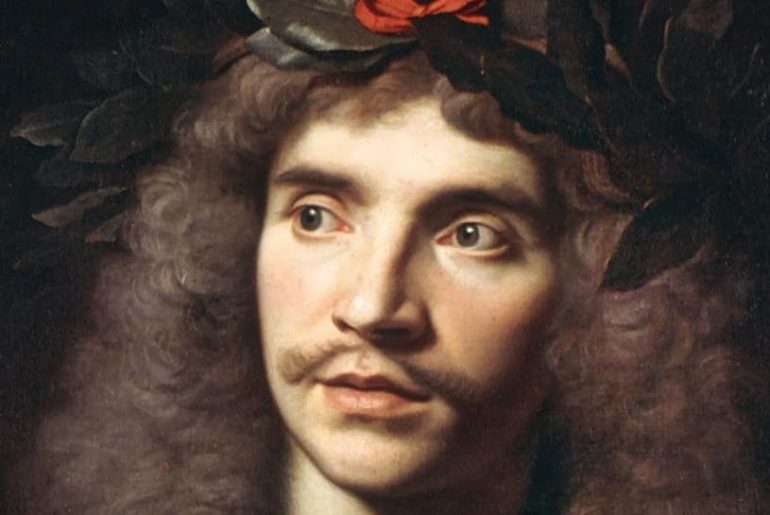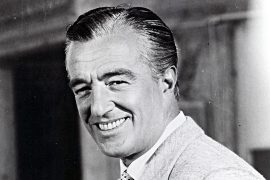On January 15, 1622 – 400 years ago – Molière was born. Who was the man who shaped European theater like no one else? A portrait.
Celebration day for one of the greats of French culture, the one who shaped the French language and at the same time European theater like no one else: Molière. He was already a superstar during his lifetime, but at the same time he was fiercely opposed by both the clergy and the competition.
Timeless plays
We of today live in a completely different time; but pieces like “Tartuffe”, “The Miser” and above all “The Imaginary Sick” are considered timelessly funny and are always played – and seen – with pleasure.
His life was work, hard work for easy play:
“In serious plays it suffices, without embarrassing oneself in the least, to formulate important things well; for the likes of us that is not enough. We have to amuse, and it is a tricky business to make people of taste laugh.”
Moliere
Molière, baptized Jean-Baptiste Poquelin in Paris on January 15, 1622, was a master at this tricky thing. People in their merriment and ridiculousness can only be portrayed by those who really know them. Molière knew the people – normal people with all their idiosyncrasies. For thirteen years he had traveled all over the country with a traveling theater company, as an actor and soon also as a theater director. Perhaps those years of wandering were even the happiest times of his life. Charles d’Assoucy, one of the itinerant comedians, later recalled: “Since a man is never poor so long as he has friends and I had Molière as a mentor, I lived, defying the devil, prosperously and contentedly as never before”.
The desire for the word spectacle and the punch line
Even the early pieces that Molière wrote during this period – not so much out of an inner artistic urge, by the way, but for the very practical reason that the group’s repertoire was simply too small and the pieces by other authors failed far too often – are overflowing with his lust for the spectacle of words, his lust for the punch line. One can hardly say that his work is dramaturgically or even literary overly attractive. But he, mon Dieu, had ideas like hardly anyone else, as a quote from the one-act play “The Jealousy of the Anxious” proves:
“So you take me for a man who wants to make money, for an interest hunter, a shopkeeper’s soul? Listen then, my friend: if you gave me a purse, filled to the brim with gold pieces, and this purse would be in a richly decorated box and this box in a precious case, and this case in a wonderful chest, and this chest would be in a mysterious bay, and this bay would be in a beautiful room, and this room in a spacious apartment, and this apartment in a pompous castle, and this castle in an impregnable one fortress and this fortress in a famous city and this city on a fertile island and this island in a swanky province and that province in a flourishing monarchy and that monarchy encompassed the whole world – and you would give me the world in which this flourishing monarchy and in it this ostentatious province and in it the fertile island and in it the impregnable fortress and dar into this pompous castle and in it this spacious apartment and in it this wonderful room and in it the mysterious bay window and in it the wonderful chest and in it the precious case and in it the decorated box in which the purse was located, full of gold pieces – I would look around don’t care about your money any more than you care about yourself, namely not at all.”
Molière: A daredevil
Molière was a courageous go-getter who was hardly impressed by the authorities of his time – and yet he prided himself on being in the favor of Louis XIV. The Sun King granted the traveling troupe a permanent venue in Paris, first the city palace “Petit Bourbon”, then the “Palais Royal”. That left Molière 15 years before his untimely death at 51. They were filled with the occasional love affair and, otherwise, incessant work. During the day he played what he had written at night. His last comedy was “The Imaginary Invalid”.
Terminally ill, Molière played the imaginary patient – and collapsed on stage at the fourth performance, on February 17, 1673. His old friend d’Assoucy wrote him a touching obituary: “God, what a fate! Molière passed away, who made everyone happy! Farewell, laughter, farewell! Farewell, beloved games!” They are still alive today: laughing with Molière, the joy of playing thanks to Molière.
What was Molière known for?
Molière wrote comedies for the stage. He is the author of enduring plays such as Tartuffe and Le Misanthrope. Many of his plays contained scandalous material. They were met with public outcry and were suppressed by the Roman Catholic Church.
Why did Molière change his name?
In 1643 Molière renounced the hereditary post his father held and chose instead the theater. Since the life of the theater was not considered very respectable, he assumed the name “Molière” in order to spare embarrassment to his family.
Did Molière marry his own daughter?
Around this time, Molière and Madeleine began to live apart; in 1662, he married her beautiful daughter Armande (passed off as Madeleine’s “sister”). Molière’s enemies whispered that Armande, some 20 years younger than the playwright, was his own daughter.
Who was Molière influenced by?
John Root
Pierre Corneille
Plautus
Giordano Bruno
Was Molière buried?
Date of burial: 1817
Place of burial: Père Lachaise Cemetery, Paris, France
Who was molieres wife?
Armande-Grésinde-Claire-Élisabeth Béjart was a French stage actress, also known under her stage name Mademoiselle Molière. She was married to Molière, and one of the most famous actresses in the 17th-century.
Who is Molière’s father?
Jean Poquelin
Why is Molière controversial?
Copies of Molèire’s 1664 script were banned, burned, and lost to history after leaders of the Catholic church condemned the comedy as an attack on religion. In Europe, there had always been a tempestuous relationship between the church and the stage, but Tartuffe arguably set a new precedent.
What are Molière’s plays like?
Plays followed a five-act form. Use of special effects and elaborate staging. Decorum had to be followed: characters were real (e.g. no ghosts) and behaved according to their status. Stories were believable.
What is molieres most famous play?
Tartuffe
1669
The Misanthrope
1666
The Miser
1668
The School for Wives
1662
The Imaginary Invalid
1673
Dom Juan
1665
What is Molière language?
French is a Romance language of the Indo-European family. It descended from the Vulgar Latin of the Roman Empire, as did all Romance languages. French evolved from Gallo-Romance, the Latin spoken in Gaul, and more specifically in Northern Gaul.





